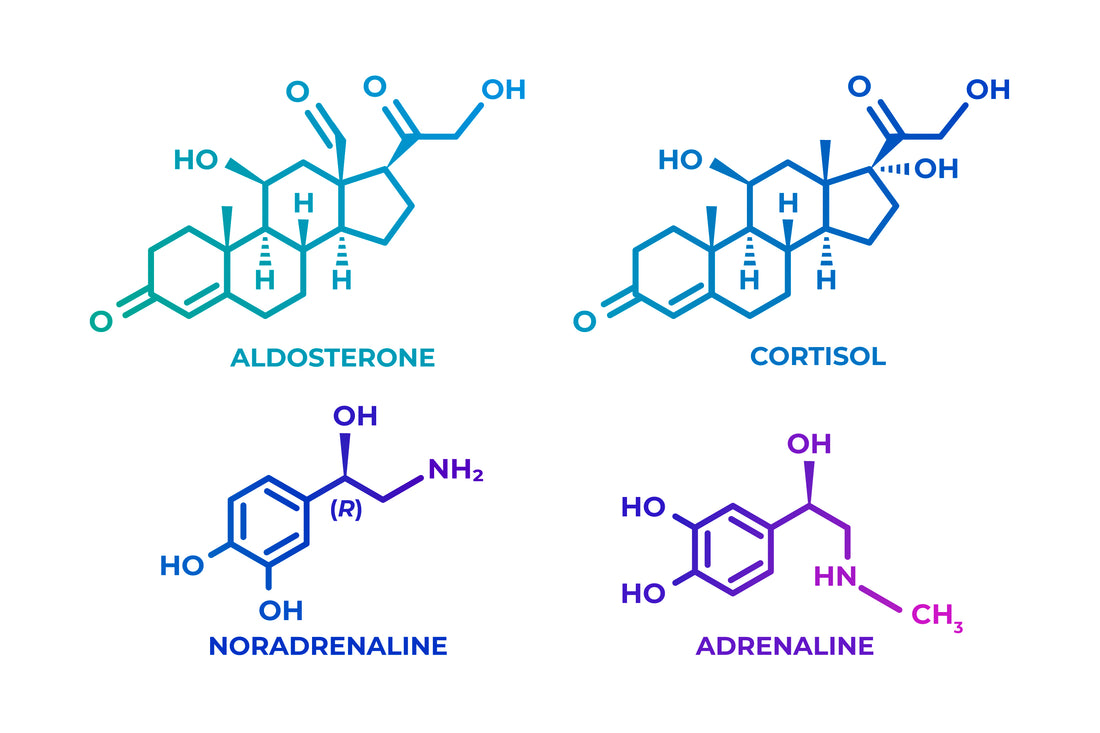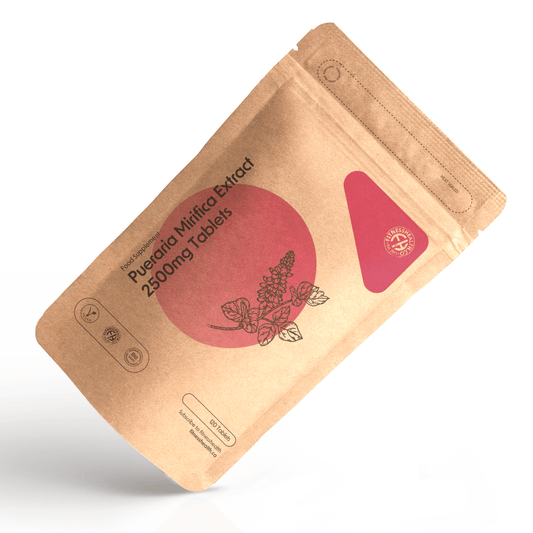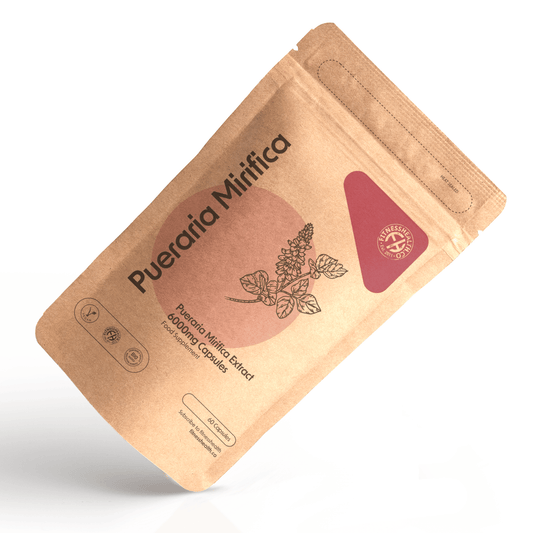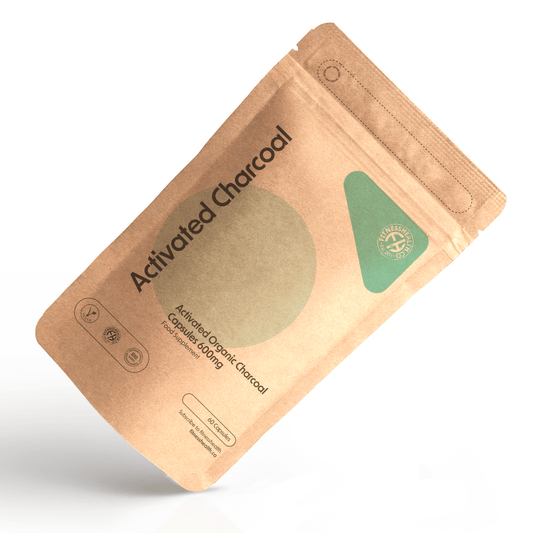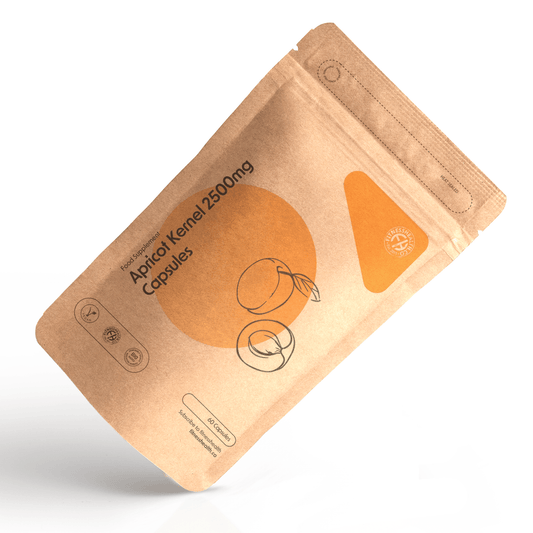Glutamine, the most abundant amino acid in the body, plays crucial roles in various physiological critical functions. From supporting immune system function to aiding in wound healing and recovery from illnesses, glutamine is a multifaceted amino acid with diverse benefits for the body. We look at the importance of this amino acid L-glutamine, its various uses, dietary sources, available forms, and potential interactions to provide a comprehensive understanding of what glutamine can do for your body.

The Role of Glutamine in the Body
Glutamine as a Building Block for Proteins
Glutamine plays a crucial role in the body as the most abundant amino acid and a fundamental building block for proteins. The body naturally produces glutamine to meet its regular needs, with muscles storing the majority of this amino acid. However, during times of heightened stress, such as following intense exercise or injury, the body's demand for glutamine may exceed its production capacity.
Regulation of Ammonia and its Effects
Building on its role as a protein building block, glutamine also regulates excess ammonia in the body, a common waste product. This function is crucial for maintaining overall health and wellness. Moreover, glutamine contributes to immune system function, supports normal brain function, and aids in digestion. In cases of medical conditions like injuries, surgery, infections, or prolonged stress, glutamine levels may decrease, highlighting the importance of this amino acid in various physiological processes.
Understanding how glutamine functions in the body sheds light on its significance as a critical component of overall health and well-being. From protein synthesis to immune support and waste product regulation, glutamine serves as a multifaceted amino acid crucial for maintaining proper bodily functions.
Key Takeaways:
- Glutamine is important: Glutamine is the most abundant amino acid in the body and plays crucial roles in immune function, brain function, digestion, and removing excess ammonia.
- Benefits for specific conditions: Glutamine supplementation may be beneficial for wound healing, recovery from illness, inflammatory bowel disease, athletes, and cancer patients undergoing treatment.
- Important precautions: Consult a healthcare provider before taking glutamine supplements, especially if you have certain medical conditions like kidney or liver disease, psychiatric disorders, or a history of seizures. Avoid high doses without supervision.

Glutamine Under Stressful Conditions
The Body's Response to Physical Stress
To respond to physical stress such as intense exercise or injury, the body may require more glutamine than it can produce on its own. In these situations, the body's stores of glutamine, primarily found in muscles and the lungs, may become depleted. This can lead to a decrease in immune function and hinder the body's ability to remove excess ammonia, a waste product. During times of extreme stress, supplementing with glutamine may help support the body's needs.
Glutamine's Role in Recovery and Healing
Glutamine plays a crucial role in the recovery and healing process, especially in conditions such as trauma, burns, or after surgical procedures. Studies have shown that adding glutamine to enteral nutrition can reduce the rate of death in trauma and critically ill individuals. Additionally, glutamine supplements have been found to strengthen the immune system and reduce infections, particularly post-surgery. In cases of severe burns, glutamine supplementation may aid in the recovery process.
Glutamine's ability to protect the gastrointestinal tract lining, known as the mucosa, also makes it valuable in conditions such as inflammatory bowel disease (IBD). While more research is needed to determine the effectiveness of glutamine supplements in treating IBD symptoms, its potential benefits in promoting healing and reducing inflammation show promise.
Glutamine and the Immune System
Enhancing Immune Function
To support a healthy immune system, glutamine plays a crucial role in providing the necessary fuel for immune cells to function optimally. Research suggests that glutamine supplementation can help strengthen the immune response, particularly during times of stress or illness. By replenishing glutamine levels in the body, you may enhance your immune function and better equip your body to combat infections and other immune challenges.
Glutamine's Impact on Infection Rates
Enhancing glutamine levels in the body through supplementation has been shown to potentially reduce infection rates, especially in individuals facing prolonged stress, surgery, or intense physical activity. Studies have indicated that individuals who supplement with glutamine may experience fewer infections, suggesting a protective effect on the immune system. This can be particularly beneficial for athletes, individuals undergoing intense medical treatments, or those with compromised immune systems.
It is important to note that the impact of glutamine on infection rates can vary depending on individual health conditions and circumstances. Consulting with a healthcare provider before initiating glutamine supplementation is recommended to ensure its suitability for your specific needs.

Glutamine and Gastrointestinal Health
Protective Effects on the Gastrointestinal Mucosa
Not only is glutamine the most abundant amino acid in the body, but it also plays a crucial role in maintaining the health of the gastrointestinal tract. Glutamine acts as a protective agent for the mucosa lining the gut, which is especially important in individuals with conditions that may compromise the integrity of the gastrointestinal lining.
Research suggests that glutamine helps in protecting and repairing the mucosa, which can be beneficial in preventing damage and reducing inflammation in the gut. This protective effect on the gastrointestinal mucosa highlights the importance of glutamine in maintaining a healthy digestive system.
Potential Use in Inflammatory Bowel Disease
Gastrointestinal health is of utmost importance, particularly in individuals with conditions such as Inflammatory Bowel Disease (IBD). Glutamine has shown potential in supporting individuals with IBD by protecting the integrity of the gastrointestinal mucosa. While some studies have shown mixed results in the use of glutamine for improving symptoms of IBD, the protective effects of glutamine on the gut lining are promising in this context.
Glutamine's role in potentially reducing inflammation and supporting gastrointestinal health in individuals with IBD underscores its importance as a supplement that may aid in improving gut function and overall well-being.

Glutamine in Sports and Physical Performance
Unlike other amino acids, glutamine plays a crucial role in sports and physical performance. For athletes, ensuring optimal levels of glutamine in the body is imperative for endurance, muscle recovery, and overall performance. To learn more about the side effects of glutamine supplementation, you can check out Glutamine (Oral Route) Side Effects.
The Effect on Endurance and Exercise
On top of its role in maintaining immune system function and supporting normal brain function, glutamine can also benefit athletes in terms of endurance and exercise. Studies have shown that athletes who train for endurance events like marathons may experience a decrease in glutamine levels in their bodies, leading to a higher susceptibility to infections post-exercise. Supplementing with glutamine has been linked to reducing the risk of infections in this specific group of athletes, potentially improving their overall performance and recovery.
Potential Benefits for Muscle Recovery
Endurance athletes are not the only ones who can benefit from glutamine supplementation. The amino acid has also shown promise in aiding muscle recovery post-training sessions or competitions. With its ability to support protein synthesis and reduce muscle breakdown, glutamine can help athletes recover faster and potentially achieve better results in their physical performance over time.
Glutamine is a valuable supplement for athletes looking to enhance their endurance, improve muscle recovery, and maintain overall physical performance. Its role in muscle protection, immune system support, and potential benefits post-exercise make it a popular choice among fitness enthusiasts and competitive athletes alike.
Clinical Use of Glutamine in Medical Conditions
Once again, glutamine proves to be a versatile amino acid with significant potential benefits in various medical conditions. In clinical use, glutamine supplementation plays a crucial role in addressing specific needs related to certain health issues.
Glutamine Supplementation in HIV/AIDS Patients
Supplementation of glutamine has shown promising results in people living with HIV/AIDS, particularly in combating severe weight loss often associated with the condition. Research indicates that the inclusion of glutamine supplements, alongside important nutrients like vitamins C and E, can aid in increasing weight gain and enhancing nutrient absorption in individuals with HIV/AIDS. These supplements may offer valuable support in managing the nutritional challenges that many individuals facing this health condition encounter.
The Role in Cancer Treatment and Side Effect Management
Management of cancer treatment and its related side effects is a critical aspect of patient care, and glutamine has been explored for its potential benefits in this area. Research suggests that supplemental glutamine may help mitigate stomatitis, a common inflammation of the mouth caused by chemotherapy. Some studies also propose that oral glutamine intake could assist in reducing chemotherapy-induced diarrhea, offering potential relief to cancer patients undergoing treatment. While further clinical research is necessary to fully ascertain the safety and efficacy of glutamine in cancer care, early findings indicate its potential importance in managing treatment-related complications.

Dietary Sources and Supplementation
Natural Food Sources of Glutamine
To ensure an adequate intake of glutamine, it's important to understand the natural food sources where this amino acid can be found. Despite the body’s ability to produce glutamine, obtaining it from dietary sources can be beneficial. Foods such as beef, pork, poultry, milk, yogurt, and certain vegetables like spinach and cabbage are rich sources of glutamine. Including these foods in your diet can help maintain optimal levels of glutamine in the body.
Guidelines for Supplementation and Dosage
Guidelines for supplementation and dosage of glutamine are crucial for ensuring its effectiveness and safety. Understanding the appropriate dosage and timing of supplementation is key in reaping the benefits of this amino acid. It is recommended to consult with a healthcare provider before starting any supplementation regimen to determine the right dosage based on individual needs and health conditions.
Considering the potential interactions and side effects of glutamine supplements, it is important to follow guidelines provided by healthcare professionals. Monitoring the dosage and adjusting as necessary can help maximize the positive effects of glutamine supplementation while minimizing any risks associated with its use.
Safety and Precautions
Now, when considering the safety and precautions of glutamine supplementation, it is important to be aware of potential side effects and interactions.
Possible Side Effects and Interactions
Any dietary supplement, including glutamine, can have potential side effects and interactions with medications. In the case of glutamine, some individuals with kidney disease, liver disease, or Reye syndrome should avoid supplementation. Moreover, those with psychiatric disorders or a history of seizures should exercise caution when considering glutamine supplementation, as it may worsen these conditions. Additionally, elderly individuals with decreased kidney function may need to adjust their glutamine dose accordingly. It is vital to consult a healthcare provider before starting any supplementation regimen to ensure safety and effectiveness.
Special Considerations for Different Populations
Safety in special populations is a crucial consideration when it comes to glutamine supplementation. A particular group that needs attention is children. Pediatric supplementation with glutamine should only be done under the guidance and recommendation of a pediatrician, as children 10 years and younger should generally not take glutamine unless part of a complete amino acid supplement. Safety in this age group is paramount, and consulting a healthcare provider is key to ensuring optimal health outcomes.

Final Words
With this in mind, glutamine plays a crucial role in various bodily functions such as immune system support, wound healing, and maintaining gastrointestinal health. It is the most abundant amino acid in the body and is necessary for removing excess ammonia, supporting normal brain function, and aiding in digestion. While the body can produce glutamine on its own and it can be obtained from dietary sources, certain medical conditions and times of heightened stress may require supplementation to maintain optimal levels.
From supporting athletes in recovery and reducing infections to aiding in the treatment of conditions like HIV/AIDS and cancer, glutamine has shown promise in numerous studies. However, it is necessary to use glutamine supplements under the guidance of a healthcare provider, as interactions with medications and potential side effects may occur. Further research is needed to fully understand the extent of glutamine's benefits and its safety in various medical contexts.
FAQ
Q: What does glutamine do to your body?
A: Glutamine is the most abundant amino acid in the body and plays a crucial role in various functions. It helps remove excess ammonia, supports the immune system, aids in normal brain function, and contributes to digestion.
Q: Why might someone need glutamine supplements?
A: During times of extreme stress, such as after heavy exercise, injury, surgery, infections, or prolonged stress, the body may require more glutamine than it can produce. In such cases, taking glutamine supplements can help replenish levels and support overall health.
Q: Are there any precautions or interactions to consider when taking glutamine?
A: Glutamine supplements should be taken under the supervision of a healthcare provider, especially at high doses. Individuals with kidney disease, liver disease, psychiatric disorders, a history of seizures, or certain conditions should use caution. Glutamine may interact with medications like lactulose and cancer therapies, so it's important to consult a doctor before supplementation.

